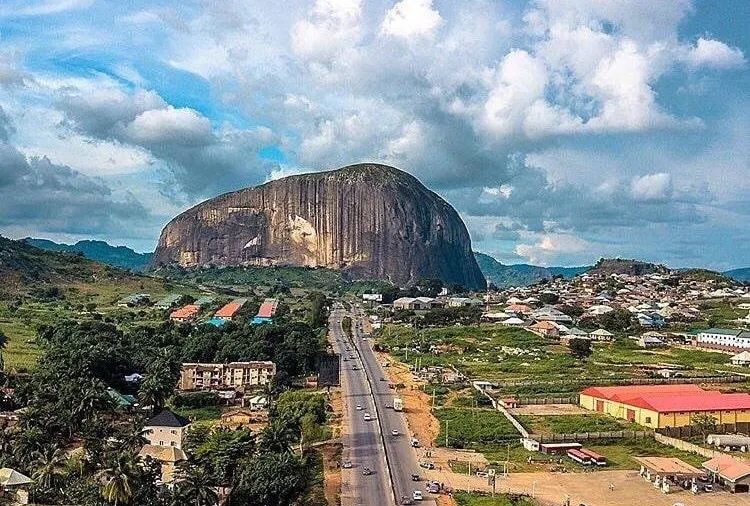
Planning a trip to Nigeria? Wondering about the trip to Nigeria cost? Look no further! In this article, we'll give you the lowdown on the cost of traveling in this vibrant country. Whether you're a first-time visitor or a seasoned traveler, we've got you covered. Our main goal is to provide you with the best tips for saving money without compromising on quality. From affordable hotels and delicious local cuisine to transportation and must-visit attractions, we'll help you make the most of your trip without breaking the bank.
So, let's dive into the nitty-gritty of the trip to Nigeria cost. When it comes to flights, you can expect a round-trip ticket to range from $500 to $1,500, depending on your departure location and the time of year. As for accommodation, Nigeria offers a wide range of options to suit every budget. From budget hotels and hostels starting at $20 per night to luxury hotels with rates ranging from $100 to $300 per night, there's something for everyone.
Now, let's talk transportation. Nigeria's public transportation system is extensive and efficient, with options like buses, taxis, and ride-sharing services available. A one-way subway or train ticket can cost anywhere from $0.50 to $2, depending on the distance. When it comes to food, you'll find a variety of dining options to satisfy your taste buds. Budget restaurants offer meals for as low as $2 to $5 per person, while mid-range restaurants range from $10 to $20 per person.
Now, let's break it down for budget travelers and mid-range travelers. If you're on a tight budget, you can expect to spend around $30 to $50 per day, including accommodation, meals, transportation, and activities. However, if you're looking for a bit more comfort and flexibility, a mid-range traveler can expect to spend around $80 to $150 per day. Remember, it's always a good idea to plan ahead and research activities and costs to create a budget that works for you.
Grab cheap eSIMs, SIMs, and portable WiFi. Stay connected anywhere!
🔥 Travel Discounts Worldwide
Find latest hot deals on flights, hotels, attractions, and more across different regions!
🚆 Hot Transportation Deals
Get up to 10% OFF Coupon on train tickets in many countries!
Check out weekly flight deals & save big!
Save 8% on car rentals
🎡 Attractions & Discounted Tickets
Enjoy deals on tickets to popular attractions around the globe. Explore more for less! 🎟️
How much does it cost for 2 nights and 3 days when traveling to Nigeria?
Hey there, fellow wanderers! Planning a trip to Nigeria and wondering how much it's gonna cost you? Well, hold on tight because we're about to break it down for you. The cost of a 2-night, 3-day trip to Nigeria can vary depending on various factors such as your travel style, choice of accommodation, transportation, and activities. But don't worry, we've got your back with a rough estimate for all you budget-savvy travelers out there.
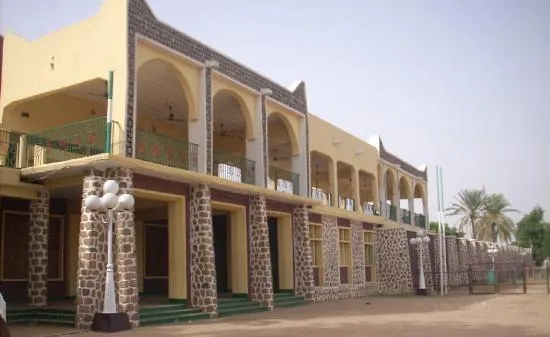
Let's start with flights, shall we? The cost of a round-trip ticket to Nigeria from major cities around the world can range anywhere from $500 to $1500, depending on your departure location and the time of year you're traveling. So, make sure to keep an eye out for those sweet flight deals!
Now, onto accommodation. If you're looking for budget-friendly options, you can find hotels in Nigeria for as low as $20 to $50 per night. That means for 2 nights, you're looking at a total cost of $40 to $100. Not too shabby, right?
When it comes to transportation, Nigeria offers a variety of options. A one-way subway or train ticket can cost you around $1 to $5, depending on the distance. So, for 3 days of getting around, you can expect to spend around $6 to $30. Not too bad for exploring the beautiful sights of Nigeria!
Now, let's talk about food and drinks. If you're a budget-conscious traveler, you can enjoy a meal at a budget restaurant for around $3 to $10 per meal. But here's a little secret - street food and convenience store meals can cost you even less! As for drinks, prices can vary depending on the type and location. Expect to spend around $1 to $5 for a refreshing beverage. So, for 3 days of satisfying your taste buds, you're looking at a cost of approximately $36 to $150.
When it comes to sightseeing and activities, Nigeria has a lot to offer. There are plenty of popular attractions that are either free or have a small entrance fee of around $1 to $5 per person. Some other attractions might be a bit more expensive, ranging from $10 to $50 per person. So, for 3 days of exploring the wonders of Nigeria, you can expect to spend around $30 to $150.
Now, let's add it all up, shall we? For a budget traveler who wants a 2-night & 3-day trip to Nigeria, you can expect to spend approximately $112 to $530. Keep in mind that these are rough estimates and actual costs may vary depending on your travel style, activities, and other expenses.
So, there you have it, folks! A breakdown of the cost for a 2-night and 3-day trip to Nigeria. Now, go ahead and start planning your adventure in this vibrant and diverse country. Safe travels!
How much does it cost for flights when traveling to Nigeria?
Planning a trip to Nigeria? One of the first things on your mind must be the cost of flights. Well, buckle up and get ready for a wild ride as we explore the various factors that can influence the price of your airfare to this vibrant African nation.
When it comes to the cost of flights to Nigeria, there's no one-size-fits-all answer. The price can vary significantly depending on several factors, including your departure location, the time of year you plan to travel, the airline you choose, and the availability of tickets.
Let's dive into the nitty-gritty and give you a general range of the cost in US dollars for both one-way and round-trip tickets from major cities around the world to Nigeria. Keep in mind that these prices are subject to change and are meant to provide you with a rough estimate.
If you're departing from New York City, you can expect to pay anywhere between $800 and $1,500 for a one-way ticket to Nigeria. Round-trip tickets, on the other hand, can range from $1,200 to $2,500. Of course, these prices can fluctuate depending on the time of year and the airline you choose.
For those jetting off from London, the cost of a one-way ticket to Nigeria can range from £600 to £1,200, while round-trip tickets can set you back anywhere between £900 and £2,000. Remember, these prices are just a ballpark figure, and you should always check with different airlines for the most accurate rates.
If you're starting your journey from Dubai, be prepared to shell out approximately 2,500 to 4,000 AED for a one-way ticket to Nigeria. Round-trip tickets can cost you anywhere between 4,000 and 7,000 AED. Keep in mind that these prices can vary depending on the season and the airline you choose.
Now, let's talk about the different classes of tickets available. If you're looking for a budget-friendly option, economy class is your best bet. However, if you prefer a little extra legroom and added comfort, premium economy might be more up your alley. Business class and first class, of course, offer the ultimate luxury and come with a higher price tag.
So, there you have it! The cost of flights to Nigeria can vary greatly depending on factors such as your departure location, time of year, airline, and ticket availability. It's always a good idea to compare prices and book in advance to secure the best deals. Safe travels and enjoy your trip to Nigeria!
How much does it cost for hotels when traveling to Nigeria?
Planning a trip to Nigeria? One of the key aspects to consider is the cost of accommodation. The price of hotels in Nigeria can vary depending on several factors, such as the location, season, and the type of accommodation you are looking for. Let's delve into the details and give you an idea of what to expect.

When it comes to major cities like Lagos, Abuja, and Port Harcourt, it's important to note that hotels tend to be more expensive compared to smaller cities or rural areas. This is primarily due to the higher demand and the availability of luxurious amenities.
In Lagos, for instance, a mid-range hotel room can cost you anywhere between $80 and $150 per night. If you're looking for a more lavish experience, luxury hotel rooms can range from $200 to $500 per night. The prices in Abuja and Port Harcourt follow a similar pattern, with mid-range rooms averaging between $100 and $200, and luxury rooms ranging from $250 to $600 per night.
On the other hand, if you're planning to explore other cities and smaller towns in Nigeria, you'll find that the hotel prices are relatively more affordable. In places like Ibadan, Enugu, and Calabar, mid-range hotel rooms can cost you around $50 to $100 per night. Luxury hotel rooms in these areas generally range from $150 to $300 per night.
It's worth mentioning that these price ranges are approximate and can vary depending on the specific hotel, its location within the city, and the time of year you plan to visit. Additionally, keep in mind that these prices are in US dollars, so it's essential to consider currency exchange rates when budgeting for your trip.
Now that you have an idea of the hotel costs in Nigeria, you can plan your budget accordingly. Remember to book your accommodation in advance to secure the best deals and availability. Enjoy your trip to Nigeria!
How much does it cost for food when traveling to Nigeria?
When planning a trip to Nigeria, it's important to consider the cost of food and dining. The prices can vary widely depending on several factors, including the type of food, the restaurant's location, and the level of formality or luxury.
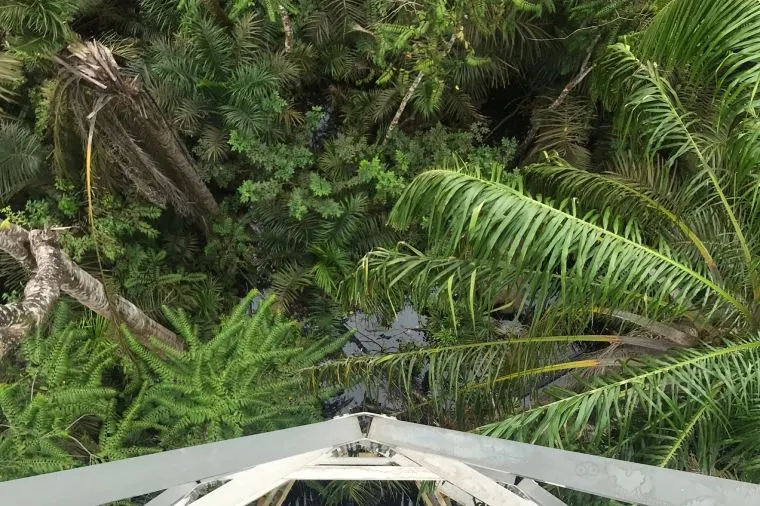
Food in Nigeria comes in a wide range of prices. Whether you're looking for street food or fast food, casual dining or local restaurants, mid-range restaurants, or high-end luxury dining, there are options to suit every budget.
Here's a breakdown of the general price ranges you can expect to find in Nigeria:
Street food or fast food: $1 - $5
Casual dining or local restaurants: $5 - $15
Mid-range restaurants: $15 - $30
High-end or luxury restaurants: $30 and above
Aside from dining out, there are also other affordable options for food in Nigeria. Convenience stores and supermarkets offer a variety of food items at reasonable prices. This can be a great option for travelers who prefer to cook their own meals or grab a quick bite on the go.
When it comes to tipping, it's important to note that tipping is not as customary in Nigeria as it is in some other countries. However, it is always appreciated to leave a small tip for exceptional service. The amount is usually discretionary and can range from 5% to 10% of the total bill.
So, when planning your trip to Nigeria, keep in mind the varying costs of food and dining. Whether you're looking for a budget-friendly meal or a luxurious dining experience, Nigeria has something to offer for every taste and budget.
How much does it cost for souvenirs when traveling to Nigeria?
Well, let me tell you, the cost of souvenirs in Nigeria can be as diverse as the country itself. It all depends on what you're looking for, where you're shopping, and the quality of the item. From vibrant textiles to intricate wood carvings, Nigeria offers a plethora of unique souvenirs that will surely capture the essence of your trip. Take for example, a beautifully handcrafted Ankara fabric, which can range anywhere from $10 to $50. Or perhaps you're interested in a traditional Nigerian mask, which can be found for around $30 to $100. If you're a lover of jewelry, a stunning piece of Nigerian coral beads can cost you anywhere from $50 to $200. And for those who appreciate art, a painting by a local Nigerian artist can be a real steal, ranging from $100 to $500. While many souvenir shops in tourist areas have fixed prices, don't be afraid to haggle a bit in other types of stores, such as flea markets or antique shops. So, whether you're on a tight budget or looking to splurge, Nigeria has something for everyone. So go ahead, immerse yourself in the vibrant culture and bring home a piece of Nigeria to cherish forever.
How much does it cost for transportation when traveling to Nigeria?
Planning a trip to Nigeria? One of the important aspects to consider is the cost of transportation. Whether you're exploring the bustling city of Lagos or venturing into the scenic countryside, understanding the transportation expenses can help you budget your trip effectively. Let's take a closer look at the cost of transportation in Nigeria.
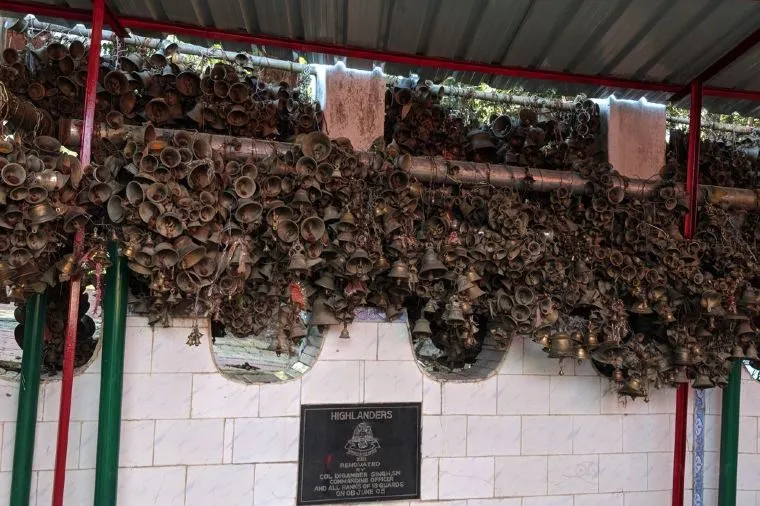
The cost of transportation in Nigeria varies depending on the mode of transportation and the distance traveled. Here are some estimated cost ranges in US dollars for different types of transportation:
- Train: Train travel in Nigeria is relatively affordable, with ticket prices ranging from $2 to $20, depending on the distance and class of travel.
- Subway: Nigeria does not have a subway system.
- Bus: Buses are a popular mode of transportation in Nigeria, and fares can range from $0.50 for short distances within a city to $10 for longer intercity journeys.
- Taxi: Taxis are widely available in Nigeria, and the cost varies depending on the distance and negotiation skills. A short trip within a city can cost around $2 to $5, while longer journeys can range from $10 to $30.
- Rental Car: Renting a car in Nigeria is a convenient option for exploring the country. Prices start at around $30 per day for a basic car, but can go up to $100 or more for luxury vehicles.
It's worth noting that Nigeria does not have specific transportation passes for visitors. However, some cities offer discount tickets for multiple trips on buses or trains. For example, in Lagos, you can purchase a rechargeable card called "Lagos Connect" that offers discounted fares for multiple journeys within the city. These passes can be a good value if you plan to do a lot of traveling in a short period.
When planning your trip to Nigeria, it's essential to consider the cost of transportation to ensure you allocate your budget wisely. By understanding the estimated costs for different modes of transportation, you can plan your itinerary and expenses accordingly. So, pack your bags and get ready to explore the vibrant and diverse country of Nigeria!
How much does it cost for sightseeing when traveling to Nigeria?
Planning a trip to Nigeria? One of the key factors to consider is the cost of sightseeing. Exploring the vibrant culture, breathtaking landscapes, and historical sites in Nigeria can be an enriching experience. However, it's essential to have an idea of the expenses involved to make the most of your trip. Let's dive into the cost of sightseeing in Nigeria and discover some popular attractions along the way!

When it comes to sightseeing in Nigeria, the cost can vary widely depending on several factors. The location, attraction, activity, and duration of your visit all play a role in determining the expenses. It's always a good idea to plan ahead and allocate a budget for sightseeing to make your trip more enjoyable.
Now, let's take a look at some of the popular tourist attractions in Nigeria and their cost ranges in US dollars:
- The Lekki Conservation Centre - $5 to $10
- The Olumo Rock - $2 to $5
- The Nike Art Gallery - $2 to $4
- The National Museum Lagos - $1 to $3
- The Millennium Park Abuja - $1 to $2
- The Tarkwa Bay Beach - Free
- The Erin Ijesha Waterfall - $2 to $5
- The Aso Rock - Free
These are just a few examples of the diverse attractions you can explore in Nigeria. From natural wonders to cultural landmarks, there's something for everyone. Remember, these prices are approximate and may vary depending on the time of your visit and any additional services you choose.
But wait, there's more! Nigeria also offers numerous free or low-cost sightseeing options. You can immerse yourself in the local culture by visiting bustling markets like the Onitsha Main Market or the Kano City Wall. Take a stroll along the beautiful beaches of Lagos or enjoy a picnic in one of the many parks scattered across the country.
So, whether you're on a tight budget or looking to splurge on unique experiences, Nigeria has it all. Plan your trip wisely, consider the cost of sightseeing, and get ready for an unforgettable adventure!
How much does it cost for Wi-Fi & communication when traveling to Nigeria?
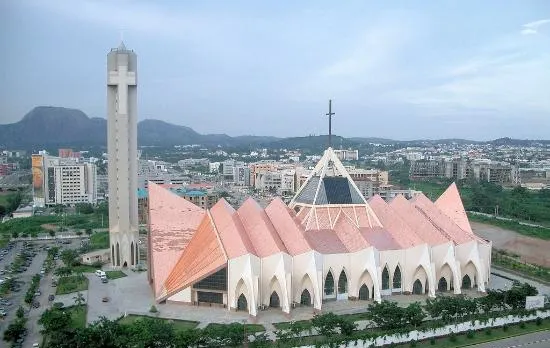
When planning a trip to Nigeria, it's essential to consider the cost of Wi-Fi and communication to stay connected while exploring this vibrant country. The options for accessing Wi-Fi in Nigeria are diverse, catering to different needs and budgets. Rental Wi-Fi routers are a popular choice, with costs varying depending on the rental company and plan selected. These routers provide a convenient way to access the internet on multiple devices simultaneously, ensuring you never miss a beat during your Nigerian adventure. Another option is obtaining a SIM card, which allows you to use your smartphone or tablet to connect to the internet. The cost of a SIM card in Nigeria depends on the data plan and provider you choose. It's advisable to research and compare different plans to find the one that best suits your needs and budget. For those on a tight budget or looking for occasional internet access, free Wi-Fi hotspots are available in various locations throughout Nigeria. Some hotels and accommodations also offer complimentary Wi-Fi for their guests, so it's worth checking before booking your stay. Additionally, certain smartphone apps, such as XYZ and ABC, provide access to free Wi-Fi hotspots across the country, making it easier for travelers to stay connected without breaking the bank. It's important to note that the cost of Wi-Fi in Nigeria can vary depending on the method of access and the data plan chosen. However, with the multitude of options available, travelers can find a solution that suits their needs and budget. So, whether you're exploring the bustling streets of Lagos or embarking on a safari adventure in Yobe, staying connected in Nigeria is both convenient and affordable.
How much does it cost for visa when traveling to Nigeria?
Planning a trip to Nigeria? Well, let's talk about the cost of visas and passports! When it comes to traveling to Nigeria, the cost of visa applications can vary depending on your country of citizenship and the type of application you need. Whether you're applying for a tourist visa, business visa, or any other type, it's essential to know the fees involved. For example, citizens from the United States can expect to pay around $160 for a single-entry visa, while citizens from the United Kingdom may have to shell out approximately £101. However, it's worth noting that some countries have the privilege of visa-free access to Nigeria, such as citizens of ECOWAS member countries. So, if you happen to hold a passport from one of these countries, lucky you!
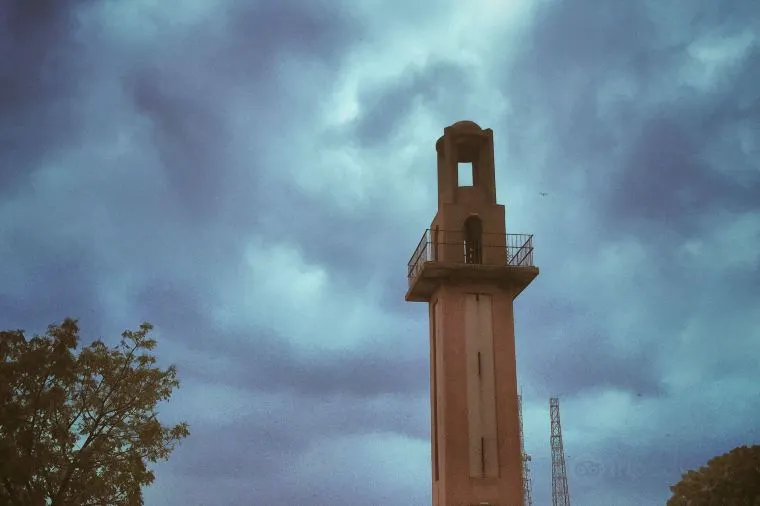
It's important to remember that visa application fees can vary depending on your country of citizenship and the specific type of application you're submitting. Additionally, certain countries may require additional fees for visa applications or other travel documents. To ensure you have the most accurate and up-to-date information on passport and visa requirements, it's always a wise move to check with your local embassy or consulate. They'll be able to provide you with the latest details on fees and any additional documents you may need. So, before you embark on your Nigerian adventure, make sure you're well-informed about the costs involved in obtaining your passport and visa.
How much does it cost for insurance when traveling to Nigeria?
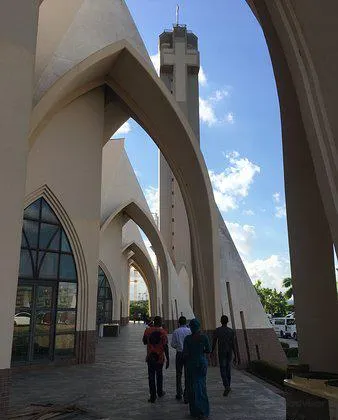
The cost of insurance for a trip to Nigeria can vary depending on several factors. These factors include your age, the length of your trip, the type of coverage you need, and the insurance provider you choose. To give you a general idea of the costs involved, here are some guidelines for travel insurance:
Single Trip Insurance: The cost range for a single trip insurance policy to Nigeria can start from as low as $30 and go up to $200. The price will depend on the coverage you select and the duration of your trip.
Annual Travel Insurance: If you are a frequent traveler to Nigeria, an annual travel insurance policy might be a better option for you. The cost range for this type of policy can vary from $200 to $800, depending on the coverage and duration of your trips throughout the year.
Comprehensive Travel Insurance: For those who want maximum coverage and peace of mind, a comprehensive travel insurance policy is recommended. The cost range for this type of policy can range from $100 to $500, depending on the coverage options and duration of your trip.
It's important to compare travel insurance policies from different providers to find the coverage that best meets your needs and budget. Take the time to read the policy details carefully and understand what is and isn't covered, as well as any deductibles or exclusions. Additionally, some credit cards and travel booking sites offer travel insurance as a benefit or add-on, so be sure to explore those options as well.
Comparing policies and understanding the coverage is crucial to ensure you have the right protection during your trip to Nigeria. Don't forget to consider factors like medical coverage, trip cancellation, baggage loss, and emergency assistance when making your decision.
How much does it cost for family, couples or single when traveling to Nigeria?
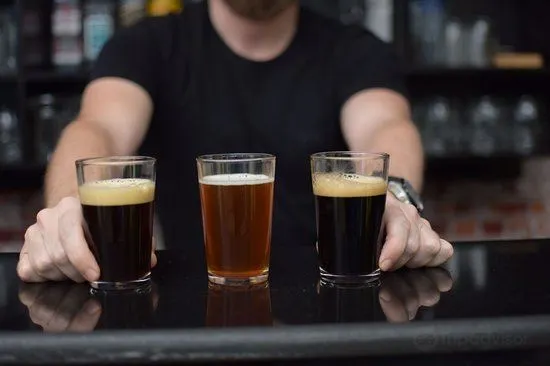
The cost of traveling to the country can vary widely depending on a number of factors, such as the length of the trip, the type of accommodation, the level of luxury, the activities planned, and the number of travelers. Here's the lowdown on what you can expect:
Airfare: Let's talk about the elephant in the room first - airfare. The cost of airfare to Nigeria can be as low as a few hundred dollars or as high as several thousand dollars per person, depending on where you're flying from and when you're flying. It's like a game of roulette, you never know what you're gonna get.
Accommodation: Finding a place to rest your weary head can be a bit of a challenge. On the budget end of the spectrum, you can find a decent hotel or hostel for around $20 to $50 per night. If you're looking for something a bit fancier, you can expect to pay anywhere from $100 to $300 per night for a mid-range hotel or luxury accommodation. It's all about finding that sweet spot between comfort and cost.
Food and drink: Let's not forget about the most important part of any trip - the food! On a budget, you can enjoy a tasty local meal for around $5 to $10 per person. If you're feeling a bit fancy, you can splurge on a mid-range meal at a local restaurant for around $15 to $30 per person. Just be sure to save room for some jollof rice and suya!
Transportation: Getting around Nigeria can be an adventure in itself. A single metro or train ticket will set you back around $0.50 to $1.50, depending on the distance. If you're looking to travel long-distance, a bullet train ticket can range from $10 to $50, depending on the destination. And don't forget about taxis and car rentals, which can add a few extra bucks to your transportation costs.
Overall, the cost of a trip to Nigeria can range from a few hundred to several thousand dollars per person, depending on your travel style and preferences. Whether you're a family, a couple, or a solo traveler, you can expect to spend anywhere from $500 to $5000 on your Nigerian adventure. So, start saving those pennies and get ready for an experience like no other!
Methods to Save Money When Traveling to Nigeria
Planning a trip to Nigeria can be an exciting adventure, but it's essential to keep an eye on your budget. Saving money while traveling doesn't mean compromising on the quality of your experience. With a little bit of research and smart decision-making, you can make your trip to Nigeria cost-effective without missing out on the incredible experiences this vibrant country has to offer.
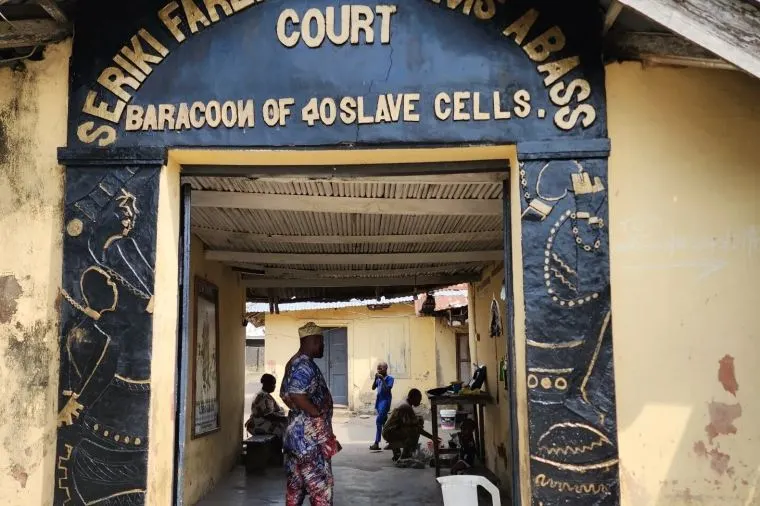
One of the best ways to save money during your trip to Nigeria is by booking your flights and accommodations in advance. By doing so, you can take advantage of early bird discounts and avoid last-minute price hikes. Additionally, consider staying in budget-friendly accommodations, such as guesthouses or hostels, which offer comfortable yet affordable options.
When it comes to transportation, opting for public buses or shared taxis can significantly reduce your expenses. These modes of transportation are not only cost-effective but also provide an opportunity to interact with locals and immerse yourself in the Nigerian culture. However, if you prefer more convenience and flexibility, renting a car can be a viable option, especially if you are traveling in a group.
Exploring local markets and street food stalls is another fantastic way to save money on meals. Nigerian cuisine is rich in flavors and offers a wide variety of delicious dishes. By indulging in local street food, you not only get to experience the authentic flavors but also save a significant amount compared to dining at upscale restaurants.
Furthermore, consider visiting free or low-cost attractions and landmarks. Nigeria is home to breathtaking natural wonders, historical sites, and vibrant cultural festivals. Research and plan your itinerary accordingly, ensuring you make the most of these budget-friendly options.
Lastly, always be mindful of your spending habits. Avoid unnecessary splurges and impulse purchases. Instead, allocate a daily budget and stick to it. Keep track of your expenses and look for opportunities to save, such as using public Wi-Fi instead of purchasing expensive data plans or opting for local SIM cards.
By following these methods, you can make your trip to Nigeria not only memorable but also cost-effective. So, pack your bags, embrace the Nigerian spirit, and embark on an incredible journey without breaking the bank!
Tips for Traveling to Nigeria
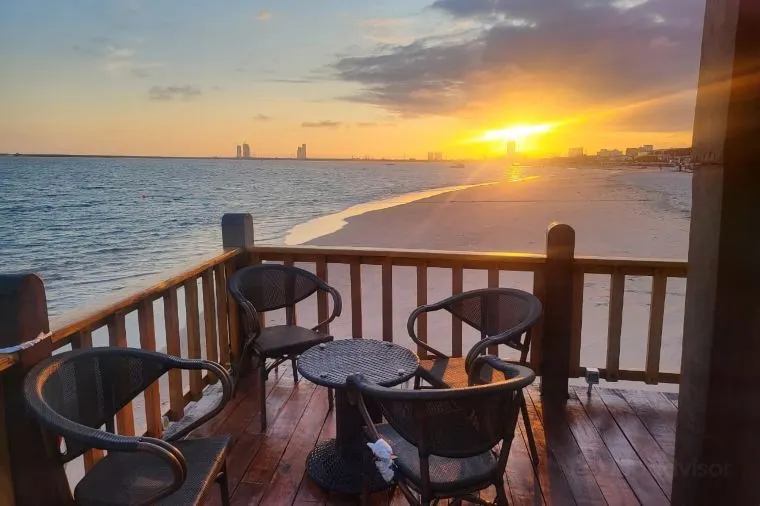
Are you planning a trip to Nigeria? Well, buckle up and get ready for an adventure like no other! Nigeria, known as the "Giant of Africa," is a vibrant and diverse country with a rich cultural heritage and breathtaking landscapes. Whether you're a seasoned traveler or embarking on your first international journey, here are eight essential tips to ensure a smooth and enjoyable experience.
1. Do your research: Before jetting off to Nigeria, take the time to learn about the country's history, customs, and local traditions. This will not only enrich your travel experience but also help you navigate any cultural differences you may encounter.
2. Get your documents in order: Ensure that your passport is valid for at least six months beyond your intended stay. Additionally, check if you require a visa and apply well in advance to avoid any last-minute hassles.
3. Stay connected: Nigeria is well-connected in terms of mobile networks, so consider purchasing a local SIM card upon arrival. This will not only provide you with affordable internet access but also allow you to stay connected with your loved ones back home.
4. Stay healthy: It's crucial to prioritize your health while traveling. Make sure you are up to date with routine vaccinations and consider getting additional vaccines such as typhoid and yellow fever. Also, remember to drink bottled water and practice good hygiene to avoid any stomach troubles.
5. Stay safe: Like any other destination, it's important to take precautions to ensure your safety. Be aware of your surroundings, avoid displaying valuable items, and use reliable transportation options. It's always a good idea to register with your embassy or consulate before traveling.
6. Embrace the local cuisine: Nigeria is a food lover's paradise with a wide array of delicious dishes to try. From jollof rice to suya, be sure to indulge in the local flavors and savor the unique culinary experience.
7. Explore the natural wonders: Nigeria boasts stunning natural landscapes, including breathtaking waterfalls, pristine beaches, and wildlife reserves. Don't miss the opportunity to visit places like Olumo Rock, Yankari National Park, and the beautiful Niger Delta.
8. Immerse yourself in the culture: Nigeria is a melting pot of cultures, each with its own traditions and festivals. Take the time to attend local events, visit museums, and interact with the friendly locals to truly immerse yourself in the vibrant Nigerian culture.
* All user reviews in this article have been translated by machine.
* The information above is subject to change at any time. For the latest information, please check the websites of hotels and attractions.
